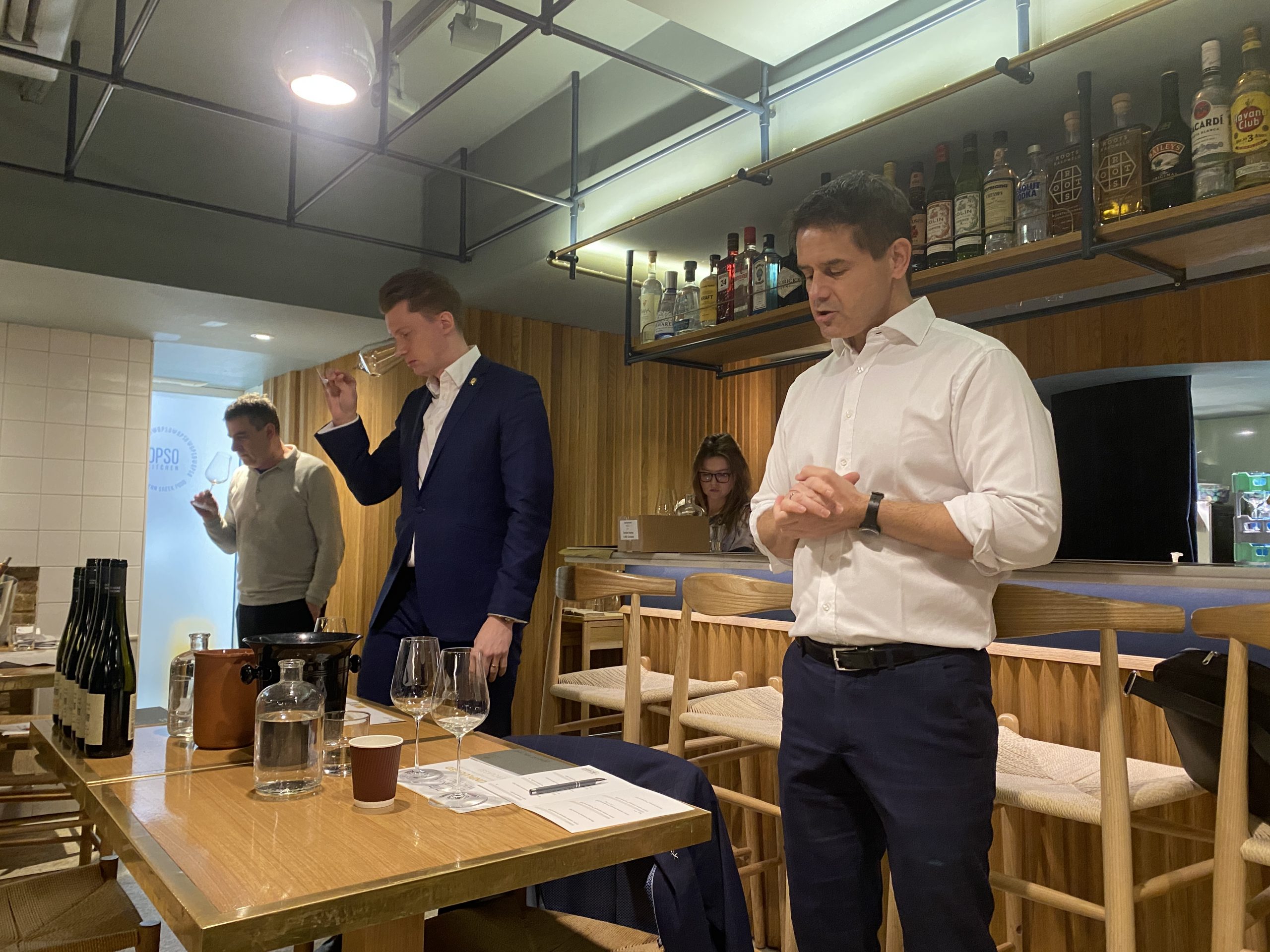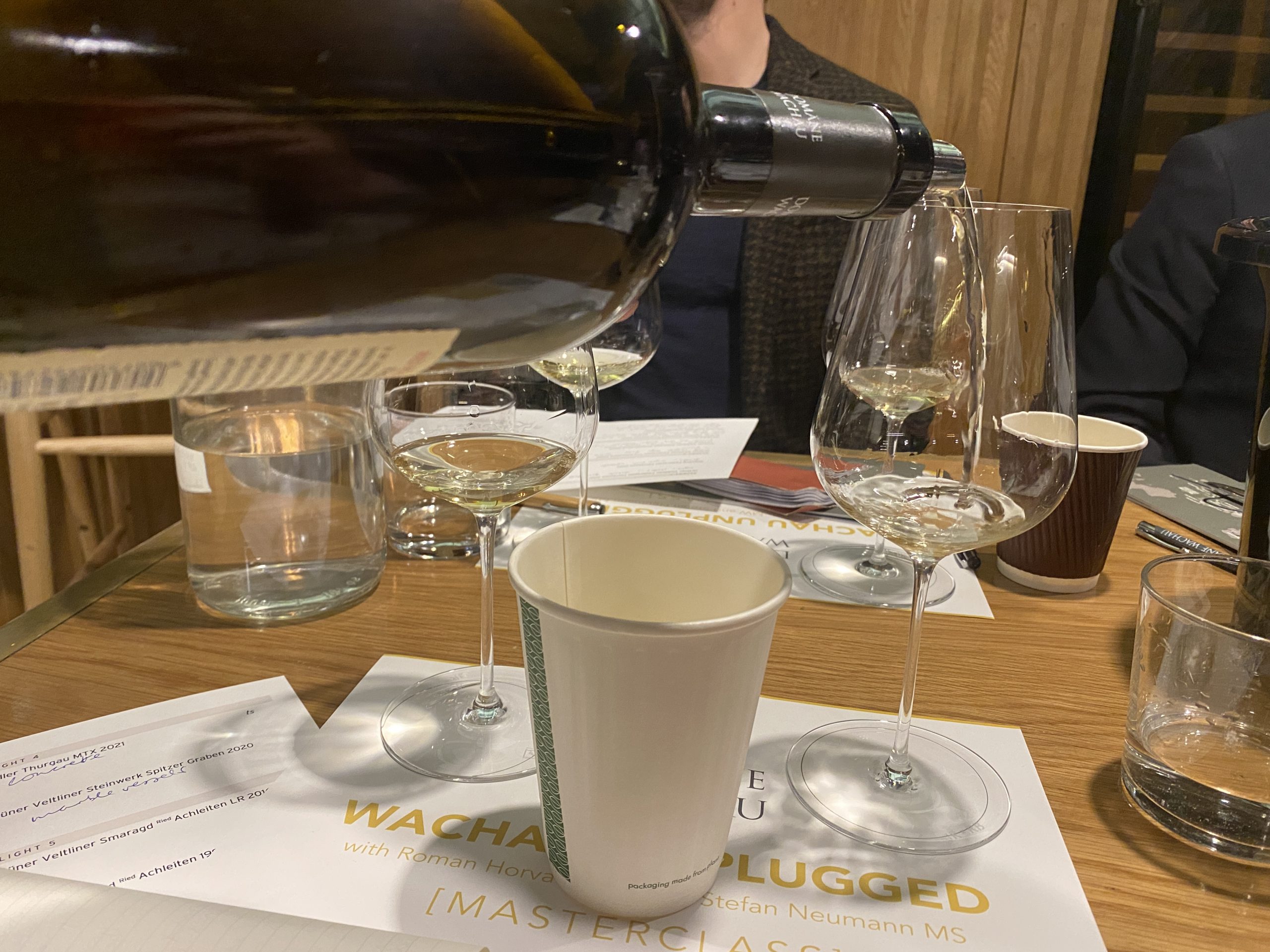This website uses cookies so that we can provide you with the best user experience possible. Cookie information is stored in your browser and performs functions such as recognising you when you return to our website and helping our team to understand which sections of the website you find most interesting and useful.
Domäne Wachau: breaking the prejudice against cooperative winemaking
In a tasting held today in London, Domäne Wachau director Roman Horvath MW highlighted the rising quality of Austrian wines, attributing success to the cooperative’s collaborative approach to winemaking.

“With a good concept and great people out there, you can do the same high quality wines as any top estate,” Horvath said of cooperative winemaking.
Having joined Domäne Wachau over 15 years ago, Horvath has been working with chief winemaker Heinz Frischengruber ever since, and hopes to break the “prejudice against cooperatives” with the ever-increasing quality of Wachau wines.
According to Horvath, this quality has been 12 years in the making, actively working with 250 producer families in the region to develop a more premium offering of Austrian wines.
Domäne Wachau takes a hands-on approach to its cooperative. Rather than waiting for the grapes to arrive from producers, winemaker Frischengruber has direct involvement with the vineyards and the health of the soils.
The Domäne’s approach is “not really ingoing, but outgoing,” master sommelier Stefan Neumann summarised at the tasting.
When it comes to the vineyards, Domäne Wachau has the “huge advantage” of few extra and untrained pickers in the vineyards. Winegrowers and producer families are responsible for picking their own grapes, usually done by hand. “Day to day and generation by generation experience” characterises the approach, Neumann added.

Frischengruber’s mantra of “slow and steady” takes precedence for Domäne Wachau, not only when it comes to winemaking, but also the relationship with producers.
“What we earn goes back into the vineyards,” said Horvath. He aims to “bring every single grower into this big family”.
Featured in the tasting were five flights of Grüner Veltliner and Riesling, from the current vintage to older rarities. “Real classics” of the region, according to Horvath, sat alongside wines from Domäne Wachau’s backstage portfolio.
Grüner Veltliner and Riesling make up 90% of the Domäne’s production.
This year’s vintage
The first flight to be tasted were Grüner Veltliner Federspiel Terrassen 2021 and Riesling Federspiel Terrassen 2021.
Both wines were bottled in mid-January, and the flight exhibited the quality of very young wines in the portfolio.
A cool summer and long and warm autumn characterised 2021 in the region, with late flowering.
“Still in August we were nervous about how the 2021 vintage would turn out,” Horvath said.
But the winemakers should not have worried. A sunny and dry picking season led to high quality wines from the most recent vintage.
“To our view 2021 will stand above all the good years from the last ten to 15 years,” Horvath added.
But the same can not be said for the region’s 2020 vintage, which felt the effects of climate change to a high degree.
According to Horvath, as with Wachau’s 2010 and 2014 vintages, 2020 showed that climate change does not just mean higher temperatures, but also extreme weather patterns. As many as 80 hectares of vineyards in Wachau were completely destroyed by hail storms.
In total, Domäne Wachau lost 35-40% of its normal crop in 2020 due to extreme weather, over its 1,300 hectares of vineyards.
Despite previous challenges, the director of Domäne Wachau is confident in the cooperatives future success. Calling Austria a young wine producing country in terms of quality wines, Horvath described developments in winemaking as a “learning process” spanning generations, with more positives to come.
Click here for seven reasons to drink Austrian wine.
Related news
UK Christmas lights could buy 14 million mulled wines

